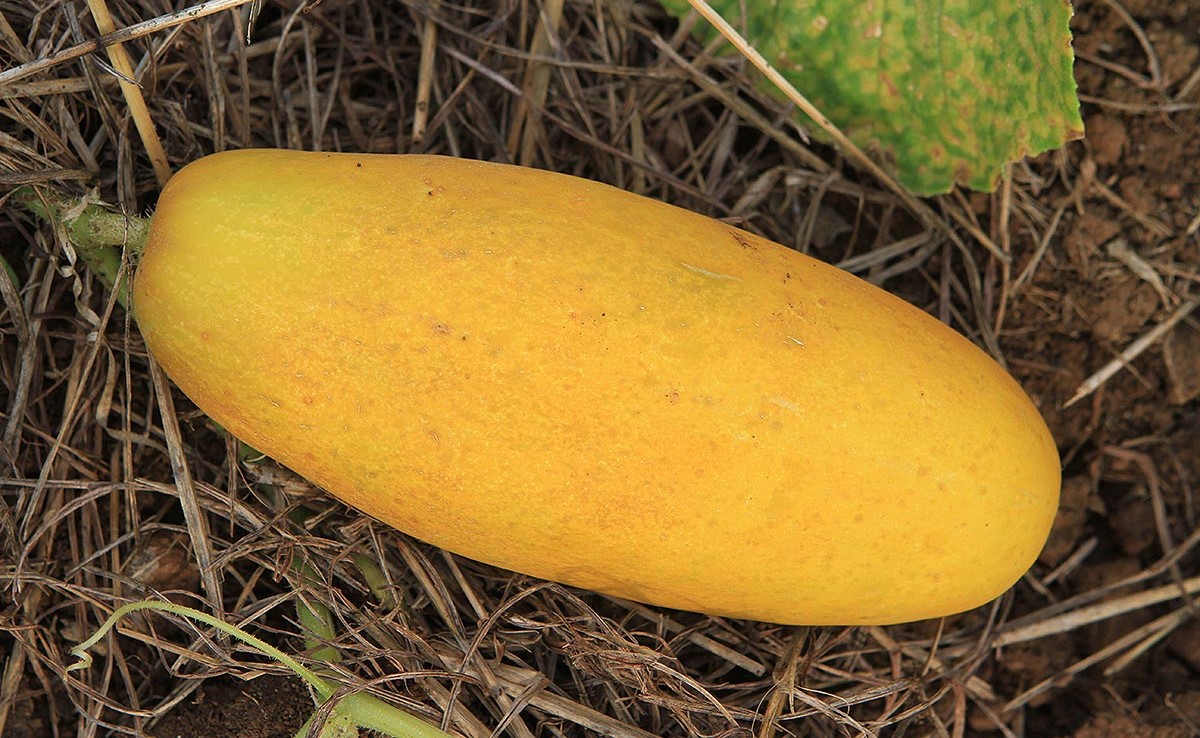
Yellow cucumbers might sound unusual, but they pack a punch of flavor and nutrition. These vibrant veggies aren't just eye-catching; they're also loaded with health benefits. Rich in vitamins A and C, yellow cucumbers help boost your immune system and keep your skin glowing. They also contain antioxidants that fight off harmful free radicals. Low in calories and high in water content, they make a perfect snack for those looking to stay hydrated and maintain a healthy weight. Curious about how to incorporate them into your diet? From salads to smoothies, the possibilities are endless. Ready to learn more? Let's dive into 20 fascinating facts about yellow cucumbers!
Key Takeaways:
- Yellow cucumbers are a vibrant and nutritious addition to your diet, offering benefits like immune support, hydration, and weight management. They're also easy to grow in warm climates and can be enjoyed in a variety of delicious dishes.
- Whether you eat them raw in salads, pickle them for a tangy snack, or grill them for a smoky flavor, yellow cucumbers are a versatile and tasty ingredient that adds a refreshing crunch and unique twist to your meals.
What is a Yellow Cucumber?
Yellow cucumbers, also known as lemon cucumbers, are a unique variety of cucumber that stands out due to their bright yellow color and round shape. They are not only visually appealing but also packed with nutrients.
- Yellow cucumbers are rich in vitamin C, which helps boost the immune system.
- They contain antioxidants that help fight free radicals in the body.
- These cucumbers are low in calories, making them a great snack for weight management.
- They have a high water content, which helps keep you hydrated.
- Yellow cucumbers are a good source of fiber, aiding in digestion.
Nutritional Benefits of Yellow Cucumbers
Yellow cucumbers offer a range of nutritional benefits that make them a healthy addition to any diet. Let's explore some of these benefits.
- They are packed with potassium, which helps regulate blood pressure.
- The presence of magnesium in yellow cucumbers supports muscle and nerve function.
- They contain folate, which is essential for cell growth and metabolism.
- Yellow cucumbers are a source of vitamin K, important for bone health.
- They have anti-inflammatory properties that can help reduce swelling and pain.
Growing Yellow Cucumbers
Growing yellow cucumbers can be a rewarding experience for gardeners. Here are some interesting facts about cultivating these vibrant vegetables.
- Yellow cucumbers thrive in warm climates and need plenty of sunlight.
- They require well-drained soil to prevent root rot.
- Regular watering is essential, but overwatering can harm the plants.
- These cucumbers can be grown vertically to save space in small gardens.
- They are typically ready for harvest 50-60 days after planting.
Culinary Uses of Yellow Cucumbers
Yellow cucumbers are versatile in the kitchen and can be used in various dishes. Here are some ways to enjoy them.
- They can be eaten raw in salads for a refreshing crunch.
- Yellow cucumbers can be pickled for a tangy snack.
- They make a great addition to smoothies for a hydrating boost.
- You can use them in salsas for a unique twist on traditional recipes.
- Yellow cucumbers can be grilled for a smoky flavor in summer dishes.
The Final Bite on Yellow Cucumbers
Yellow cucumbers, often overlooked, pack a punch with their unique flavor and health benefits. They’re not just a colorful addition to your salad but also a powerhouse of nutrients. Rich in vitamins and antioxidants, these cucumbers help boost your immune system and improve skin health. Their high water content keeps you hydrated, especially during hot summer days.
Growing yellow cucumbers in your garden can be a rewarding experience. They’re relatively easy to cultivate and can thrive in various climates. Plus, they add a splash of color to your garden, making it more vibrant.
Next time you’re at the grocery store or farmer’s market, don’t hesitate to pick up some yellow cucumbers. They’re versatile, nutritious, and delicious. Give them a try and enjoy the many benefits they bring to your table.
Frequently Asked Questions
Was this page helpful?
Our commitment to delivering trustworthy and engaging content is at the heart of what we do. Each fact on our site is contributed by real users like you, bringing a wealth of diverse insights and information. To ensure the highest standards of accuracy and reliability, our dedicated editors meticulously review each submission. This process guarantees that the facts we share are not only fascinating but also credible. Trust in our commitment to quality and authenticity as you explore and learn with us.


